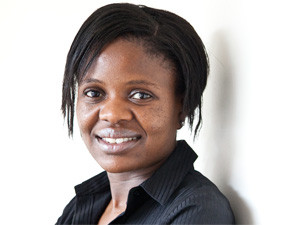
While SA stacks up well in terms of mobile data costs, when compared to its African peers, prices are unlikely to reach a new lower level unless there are fundamental changes in the market, including the release of more spectrum.
A new report from Research ICT Africa shows that, while South Africa ranks poorly on prepaid mobile prices compared to other African countries, it does better on pricing of mobile broadband data.
Yet, while pricing for high-use mobile data packages for prepaid and contract baskets, as well as lower-use postpaid are competitive, the cost of lower use prepaid mobile - where affordability is most likely to be an issue - remains relatively high, Research ICT Africa notes.
According to the research, SA ranks as the cheapest in postpaid for 1GB, and fourth for prepaid, while ADSL ranks sixth out of the 12 countries included. Its findings include that, on 5GB deals, SA is second cheapest for prepaid and contract.
Still too high
Alison Gillwald, executive director at Research ICT Africa, says while the price of mobile broadband stacks up well in comparison to other African countries, this does not make it cheap and African prices are still high compared to developed markets.
Gillwald says operators are competitive in mobile data and, while voice is still the main source of revenue, this is shifting and in the future voice will be delivered as data. She notes there is pricing pressure in the contract market, but the low end prepaid segment is still costly.
"Consumers are benefiting from stiff price competition in the mobile broadband market. Mobile operators seek to attract, lock in, and retain data customers through attractive high-usage and contract data packages," says the report.
Consumers are benefiting from stiff price competition in the mobile broadband market, says Alison Gillwald, executive director at Research ICT Africa.
Although there is still some play in data pricing, which is profitable, there will not be a plummet in prices in the short-term until fundamental changes are made, such as the release of spectrum, new services and a wholesale access regime, says Gillwald.
In addition, rollout of long-term evolution (LTE) requires investment and access to more spectrum, says Gillwald.
Investing
In May, former communications minister Dina Pule said the New Broadband Policy would go to Cabinet in June, allowing the Independent Communications Authority of SA (ICASA) to license the "much sought-after 2.6GHz and 800MHz spectrum, including the extended digital dividend". However, dates as to when this spectrum will be released are yet to be announced.

Operators such as Vodacom and MTN invest billions in their networks each year and are improving the backhaul capacity, as well as making sure stations are LTE-ready, while at the same time reframing current frequencies so that LTE can go live.
Cell C, which received a cash injection from majority shareholder Ogar Telecom and new loans, is spending R4.7 billion, mostly on improving coverage and capacity on its network. However, the company has said future injections depend on a change in the regulatory environment, which needs to become more competitive.
Stagnant
IDC analyst Spiwe Chireka points out that, in the past 12 to 18 months, the cost of voice has not dropped significantly and is stuck at around R100 to R150 a GB. She says the focus has been on the mobile voice price war instead.
Chireka says data prices are likely to be stagnant for the next two years as operators await spectrum, and will then need to recoup investments in technology such as LTE. She says after this period, prices are likely to drop again.
The report says the cost drivers underlying SA's high fixed-broadband prices need to be identified. "While international bandwidth prices, once the major factor in South African data prices, have plummeted, terrestrial and IP transit prices are now major cost drivers."
Research ICT Africa says the impact of these prices on the cost of communications requires regulatory assessment.
"Achieving an enabling policy and regulatory framework conducive to investment, the rationalisation of existing infrastructure and the coordination of infrastructure planning going forward is a key challenge for countries such as South Africa wishing to develop their societies and economies, and become globally competitive."
Share